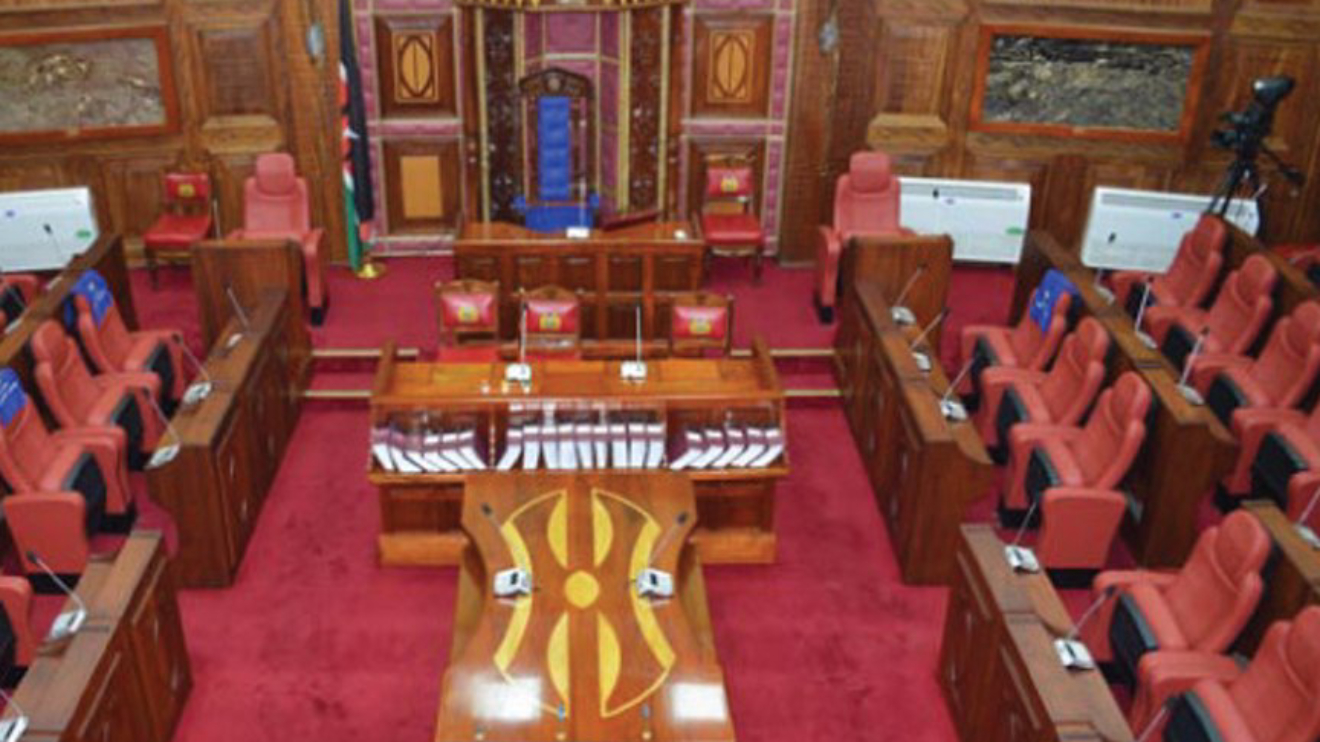The Senate faced an unexpected hurdle on Wednesday morning as it was compelled to prematurely adjourn its sitting after failing to raise the required quorum to transact business.
Education Cabinet Secretary Ezekiel Machogu was scheduled to appear before the senators during the morning plenary session to provide answers to various inquiries posed by lawmakers.
However, a lack of attendance resulted in the Senate Speaker, Amason Kingi, ordering the quorum bell to be rung for five minutes, but even that failed to yield the desired outcome, with only a few members showing up.
According to the Senate Standing Orders, a minimum of 15 senators must be present in the chamber or attend virtually for the House to proceed with its scheduled business.
Regrettably, this requirement was not met on Wednesday, prompting Speaker Kingi to make the following announcement, "Honorable senators, there being no quorum and having rung the bell pursuant to Standing Order 40, the Senate stands adjourned until today at 2:30 PM."
Read More
Among the issues to be addressed by Education Cabinet Secretary Ezekiel Machogu were queries concerning the Grade VI Kenya Primary School Education Assessment (KPSEA).
Senators were seeking a per-county breakdown of learners in both public and private schools who participated in the assessment in 2022.
Additionally, Machogu was expected to provide details on the Ministry's criteria for the placement of learners in Junior Secondary Schools and shed light on the transition of Grade VII learners to existing secondary schools.
Nandi Senator Samson Cherargei, on the other hand, had requested specific information regarding the last lifestyle audit conducted on senior officers at the Teachers Service Commission (TSC), including the Chief Executive Officer, Nancy Macharia.
Furthermore, Cherargei sought clarification on the amount of funds allocated as capitation to all public primary and secondary schools in the financial year 2022/2023, including details of the already disbursed amount.
Aside from the scheduled appearance of Education Cabinet Secretary Ezekiel Machogu, the Senate was set to deliberate on three motions.
These included the declaration of cattle rustling as a national disaster and the establishment of a special fund for its victims.
The second motion aimed at addressing the integration of ethnic minorities and marginalized communities in Kenya.
Unfortunately, with the lack of quorum, all these crucial matters were put on hold until the Senate reconvenes in the afternoon session at 2:30 PM.
The failure to assemble the required number of senators not only delayed progress but also hindered the opportunity to address pressing issues affecting the education sector and discuss critical motions pertaining to the nation's welfare.
As the Senate eagerly anticipated the afternoon session, it was expected that lawmakers would make a concerted effort to attend and fulfil their legislative duties, ensuring that quorum is achieved to effectively tackle the nation's pressing matters.
By adhering to the principles of the inverted pyramid approach, this article provides readers with a concise overview of the events that unfolded in the Senate, addressing the key journalistic questions of who, what, when, where, and why.











